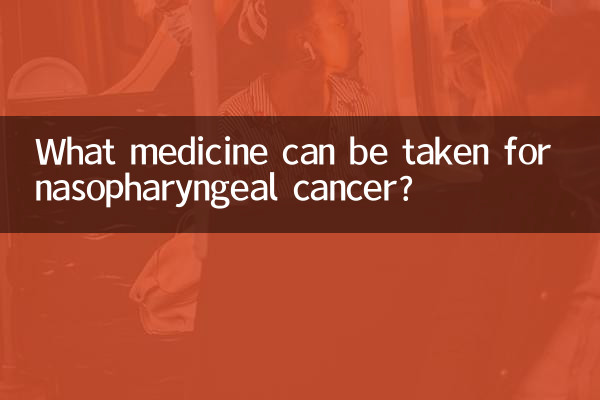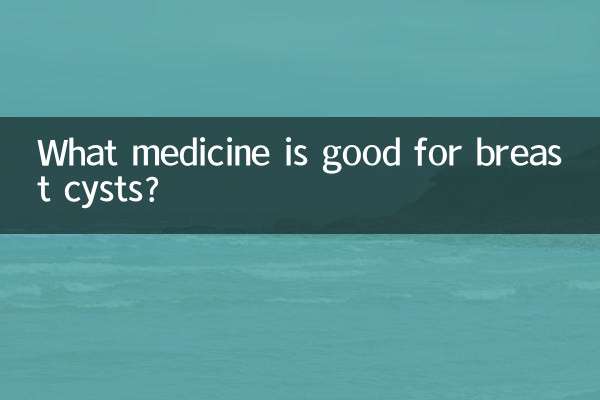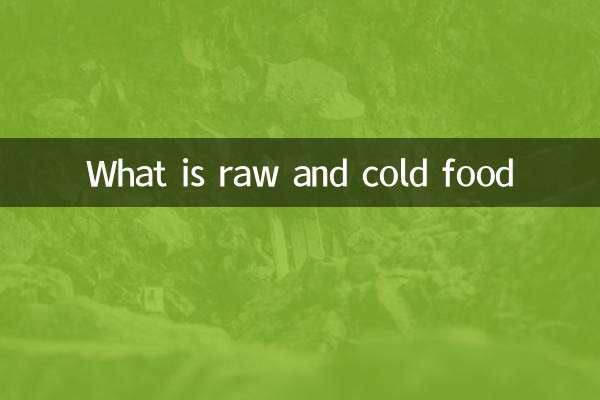What medicine can be taken for nasopharyngeal cancer?
Nasopharyngeal cancer is a malignant tumor that occurs in the nasopharynx. Treatment methods include surgery, radiotherapy, chemotherapy, and targeted therapy. Drug therapy plays an important role in the comprehensive treatment of nasopharyngeal cancer. This article will introduce in detail the drug treatment plan for nasopharyngeal cancer, and combine it with the hot topics and hot content on the Internet in the past 10 days to provide reference for patients and their families.
1. Common drug treatment options for nasopharyngeal cancer

Drug treatment for nasopharyngeal cancer mainly includes chemotherapy drugs, targeted drugs and immunotherapy drugs. The following are common drug categories and functions:
| drug type | Representative medicine | Mechanism of action | Applicable stage |
|---|---|---|---|
| chemotherapy drugs | Cisplatin, carboplatin, 5-fluorouracil | Suppresses tumor growth by killing rapidly dividing cancer cells | Advanced or metastatic nasopharyngeal carcinoma |
| Targeted drugs | Cetuximab, nimotuzumab | Target specific molecular targets to precisely inhibit cancer cells | EGFR-positive nasopharyngeal carcinoma |
| immunotherapy drugs | Pembrolizumab, nivolumab | Activate the immune system and enhance anti-tumor ability | Advanced or recurrent nasopharyngeal cancer |
2. Specific applications of chemotherapy drugs
Chemotherapy is one of the important methods in the treatment of nasopharyngeal carcinoma, especially suitable for patients with intermediate and advanced stages. The following are common chemotherapy drugs and their characteristics:
| Drug name | Medication method | Common side effects | Things to note |
|---|---|---|---|
| Cisplatin | intravenous injection | Nausea, vomiting, nephrotoxicity | Adequate hydration is required and renal function should be monitored |
| carboplatin | intravenous injection | Myelosuppression, allergic reactions | Regular blood tests are required |
| 5-Fluorouracil | intravenous drip | Stomatitis, diarrhea | Pay attention to oral care to avoid infection |
3. Latest progress in targeted drugs
In recent years, targeted drugs have made significant progress in the treatment of nasopharyngeal carcinoma. The following are the targeted drugs that are currently being studied more:
| Drug name | target | clinical effect | Indications |
|---|---|---|---|
| Cetuximab | EGFR | Combination chemotherapy improves survival | EGFR-positive nasopharyngeal carcinoma |
| Nimotuzumab | EGFR | Significantly prolongs progression-free survival | locally advanced nasopharyngeal carcinoma |
4. Application prospects of immunotherapy
Immunotherapy has been a hot field in the treatment of nasopharyngeal cancer in recent years. The following are currently commonly used immunotherapy drugs:
| Drug name | Mechanism of action | clinical effect | Indications |
|---|---|---|---|
| pembrolizumab | PD-1 inhibitors | Improve objective response rates | PD-L1 positive nasopharyngeal carcinoma |
| Nivolumab | PD-1 inhibitors | Extend overall survival | advanced nasopharyngeal cancer |
5. Precautions for drug treatment
1.individualized treatment: The drug treatment of nasopharyngeal cancer needs to be formulated according to the specific situation of the patient, including tumor staging, molecular classification, etc.
2.side effect management: Drug treatment may bring about a series of side effects, such as bone marrow suppression, gastrointestinal reactions, etc., which need to be dealt with in time.
3.Regular review: During treatment, imaging and tumor markers need to be reviewed regularly to evaluate the efficacy.
4.psychological support: The treatment process for nasopharyngeal cancer is long. Patients and their families need to maintain a positive attitude and seek psychological counseling when necessary.
6. Summary
There are various drug treatment options for nasopharyngeal cancer, including chemotherapy, targeted therapy and immunotherapy. Patients should choose a treatment plan that suits them under the guidance of a doctor, and pay close attention to the side effects during treatment. With the advancement of medicine, more and more new drugs and technologies will bring hope to patients with nasopharyngeal cancer.

check the details

check the details